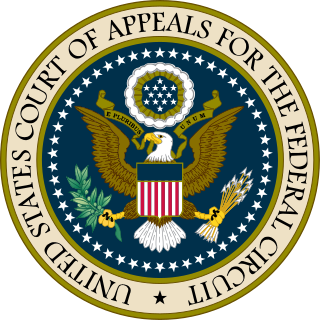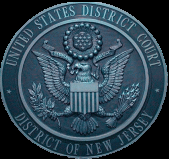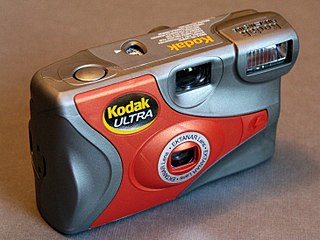
In re Aimster Copyright Litigation, 334 F.3d 643, was a case in which the United States Court of Appeals for the Seventh Circuit addressed copyright infringement claims brought against Aimster, concluding that a preliminary injunction against the file-sharing service was appropriate, because the copyright owners were likely to prevail on their claims of contributory infringement and the fact that the services was capable of having non-infringing user was not enough reason to reverse the district court's decision. The appellate court also noted that the defendant could have limited the quantity of the infringements if he had eliminated an encryption system feature and if it had monitored the use of its systems. This made it so that the defense did not fall within the safe harbor of 17 U.S.C. § 512(i). and could not be used as an excuse to not know about the infringement. In addition, the court decided that the harm done to the plaintiff was irreparable and outweighed any harm to the defendant created by the injunction.
The exhaustion doctrine, also referred to as the first sale doctrine, is a U.S. common law patent doctrine that limits the extent to which patent holders can control an individual article of a patented product after a so-called authorized sale. Under the doctrine, once an authorized sale of a patented article occurs, the patent holder's exclusive rights to control the use and sale of that article are said to be "exhausted," and the purchaser is free to use or resell that article without further restraint from patent law. However, under the repair and reconstruction doctrine, the patent owner retains the right to exclude purchasers of the articles from making the patented invention anew, unless it is specifically authorized by the patentee to do so.
Microsoft Corp. v. AT&T Corp., 550 U.S. 437 (2007), was a United States (U.S.) Supreme Court case in which the Supreme Court reversed a previous decision by the Federal Circuit and ruled in favor of Microsoft, holding that Microsoft was not liable for infringement on AT&T's patent under 35 U.S.C. § 271(f).
General Talking Pictures Corp. v. Western Electric Co., 304 U.S. 175 (1938), was a case that the Supreme Court of the United States decided in 1938. The decision upheld so-called field-of-use limitations in patent licenses: it held that the limitations were enforceable in a patent infringement suit in federal court against the licensee and those acting in concert with it—for example, a customer that knowingly buys a patented product from the licensee that is outside the scope of the license.

Mallinckrodt, Inc. v. Medipart, Inc., 976 F.2d 700, is a decision of the United States Court of Appeals for the Federal Circuit, in which the court appeared to overrule or drastically limit many years of U.S. Supreme Court precedent affirming the patent exhaustion doctrine, for example in Bauer & Cie. v. O'Donnell.
A field-of-use limitation is a provision in a patent license that limits the scope of what the patent owner authorizes a manufacturing licensee to do in relation to the patent, by specifying a defined field of use—that is, a defined field of permissible operation by the licensee. In addition to affirmatively specifying the field of use, the license may negatively specify a field or fields, by specifying fields of use from which the licensee is excluded.
The exhausted combination doctrine, also referred to as the doctrine of theLincoln Engineeringcase, is the doctrine of U.S. patent law that when an inventor invents a new, unobvious device and seeks to patent not merely the new device but also the combination of the new device with a known, conventional device with which the new device cooperates in the conventional and predictable way in which devices of those types have previously cooperated, the combination is unpatentable as an "exhausted combination" or "old combination". The doctrine is also termed the doctrine of the Lincoln Engineering case because the United States Supreme Court explained the doctrine in its decision in Lincoln Engineering Co. v. Stewart-Warner Corp.

Jazz Photo Corp. v. United States International Trade Commission, 264 F.3d 1094, was a case in which the United States Court of Appeals for the Federal Circuit clarified the law of repair and reconstruction, holding that it was not a patent infringement for one party to restore another party's patented "one-use" camera to be used a second time.
United States v. General Electric Co., 272 U.S. 476 (1926), is a decision of the United States Supreme Court holding that a patentee who has granted a single license to a competitor to manufacture the patented product may lawfully fix the price at which the licensee may sell the product.

TiVo Inc. v. EchoStar Corp. is a case stretching from 2004 to 2011, which took place in the United States District Court for the Eastern District of Texas and the United States Court of Appeals for the Federal Circuit. TiVo Inc. sued EchoStar Corp. claiming patent infringement of a DVR technology. The issues addressed during litigation included patent infringement, wording of injunctions, infringing product redesign, contempt of court orders, and contempt sanctions. Ultimately, the court held that EchoStar Corp. had indeed infringed TiVo Inc's patent and was in contempt of court for noncompliance of an injunction. The parties reached a settlement wherein EchoStar Corp. paid TiVo Inc. a licensing fee. Further, the court replaced the established contempt test with a single step test. The simplified test makes it more difficult for patent holders to prove contempt as a result of repeat infringement.

Uniloc USA, Inc. v. Microsoft Corp., 632 F.3d 1292, was a patent lawsuit originally filed in the U.S. District Court for the District of Rhode Island.

Finjan, Inc. v. Secure Computing Corp., 626 F.3d 1197 (2010), was a patent infringement case by the United States Court of Appeals for the Federal Circuit involving "proactive scanning" technology for computer security. The Federal Circuit made a mixed decision after hearing the appeals from both sides. In terms of infringement, the Federal Circuit affirmed Secure Computing's infringement on Finjan's system and storage medium patent claims but reversed the infringement on Finjan's method claim. In terms of damage award, the Federal Circuit not only affirmed the previous $9.18 million award by the United States District Court for the District of Delaware, but also remanded for the district court to assess the extra damages between the post-judgement and pre-injunction period.
Kirtsaeng v. John Wiley & Sons, Inc., 568 U.S. 519 (2013), is a United States Supreme Court copyright decision in which the Court held, 6-3, that the first-sale doctrine applies to copies of copyrighted works lawfully made abroad.
Bowman v. Monsanto Co., 569 U.S. 278 (2013), was a United States Supreme Court patent decision in which the Court unanimously affirmed the decision of the Federal Circuit that the patent exhaustion doctrine does not permit a farmer to plant and grow saved, patented seeds without the patent owner's permission. The case arose after Vernon Hugh Bowman, an Indiana farmer, bought transgenic soybean crop seeds from a local grain elevator for his second crop of the season. Monsanto originally sold the seed from which these soybeans were grown to farmers under a limited use license that prohibited the farmer-buyer from using the seeds for more than a single season or from saving any seed produced from the crop for replanting. The farmers sold their soybean crops to the local grain elevator, from which Bowman then bought them. After Bowman replanted the crop seeds for his second harvest, Monsanto filed a lawsuit claiming that he infringed on their patents by replanting soybeans without a license. In response, Bowman argued that Monsanto's claims were barred under the doctrine of patent exhaustion, because all future generations of soybeans were embodied in the first generation that was originally sold.
Medtronic, Inc. v. Mirowski Family Ventures, LLC, 571 U.S. ___ (2014), is a case of the Supreme Court of the United States that deals with civil procedure, and specifically with the question of the burden of proof required in pursuing declaratory judgments.

JVC Kenwood Corp. v. Nero, Inc., 797 F.3d 1039, 2015 U.S. App. LEXIS 14402, is a 2015 decision of the United States Court of Appeals for the Federal Circuit concerning the rights of end users who purchase products subject to fair, reasonable, and nondiscriminatory (FRAND) licensing under an industry-wide patent pool of standards-essential patents, and of suppliers of software to the end users. The Federal Circuit held that, where the patent holder had authorized sales to end users of optical discs compliant with the standard, which embodied the patents' essential features and were reasonably intended only to be used to practice the patents, the patent owner had no direct infringement claim against the end users without proof that the end-users were using unlicensed discs. The patent holder therefore had no claim for contributory infringement or induced infringement against a software company for selling software to the end users for use with the licensed discs. The decision is said to be an important one for clarifying the rights of downstream users and their suppliers in the context of patent pools and FRAND licensing.
Henry v. A.B. Dick Co., 224 U.S. 1 (1912), was a 1912 decision of the United States Supreme Court that upheld patent licensing restrictions such as tie-ins on the basis of the so-called inherency doctrine—the theory that it was the inherent right of a patent owner, because he could lawfully refuse to license his patent at all, to exercise the "lesser" right to license it on any terms and conditions he chose. In 1917, the Supreme Court overruled the A.B. Dick case in Motion Picture Patents Co. v. Universal Film Mfg. Co.,
Impression Products, Inc. v. Lexmark International, Inc., 581 U.S. ___ (2017), is a decision of the Supreme Court of the United States on the exhaustion doctrine in patent law in which the Court held that after the sale of a patented item, the patent holder cannot sue for patent infringement relating to further use of that item, even when in violation of a contract with a customer or imported from outside the United States. The case concerned a patent infringement lawsuit brought by Lexmark against Impression Products, Inc., which bought used ink cartridges, refilled them, replaced a microchip on the cartridge to circumvent a digital rights management scheme, and then resold them. Lexmark argued that as they own several patents related to the ink cartridges, Impression Products was violating their patent rights. The U.S. Supreme Court, reversing a 2016 decision of the Federal Circuit, held that the exhaustion doctrine prevented Lexmark's patent infringement lawsuit, although Lexmark could enforce restrictions on use or resale of its contracts with direct purchasers under regular contract law. Besides printer and ink manufacturers, the decision of the case could affect the markets of high tech consumer goods and prescription drugs.








